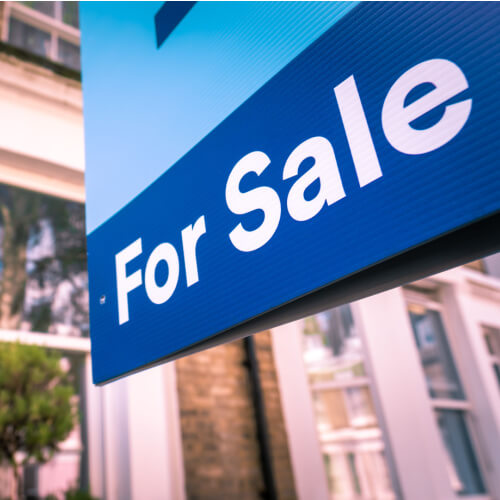 Written by James Hurwood
Written by James Hurwood
Reviewed by Stephen Zeller
Last updated 28/11/2023
![]()
Selling your house can be time-consuming, but it doesn’t necessarily have to be stressful. Our General Manager of Money, Stephen Zeller has some tips for prospective and future property-sellers to try and help them better understand and manage their property selling costs:
When researching real estate agents, it can be tempting to hire the agent with the lowest commission costs, but does this agent have a proven history of selling homes in your local area? Although an agent may charge a lower commission, they may not be able to get you as high a sale price as a more established agent with a larger customer base. Research recent sales in your area to see which agents are performing the best.
There are some simple tasks you can complete to get your property ready for sale which don’t require a professional. For example, you can remove weeds and freshen up the garden beds with some new mulch, get rid of any unused items around your home or use a pressure hose to clean your driveway and paths. And as they say, many hands make light work, so if you have any friends or family who can assist, the easier these jobs will be.
If you’re looking to purchase a home in the future after selling your current home, it’s important to consider all costs associated with selling the home to know how much you’ll have available for the new purchase. It can be easy to lose track of what has and hasn’t been paid, so creating a spreadsheet with your anticipated costs to sell your home (or even just a written tally) and crossing off each item as it’s paid can help you stay on top of things.

Some of the costs associated with selling a property may seem obvious – such as agent fees or advertising costs – but there are also less obvious expenses.
Some of the costs you might encounter while selling a property include:
You won’t necessarily have to cover every cost listed here when you sell a property; think of it as a guide to the range of costs you could have to cover. Let’s delve into each one and break down what it is and how much it might cost you to move onto your next home.
Depending on the current condition of your property, you may decide to invest in improving its visual appearance. This could include paying for things like:
Having your property professionally cleaned and/or staged can help you get a better price. Your total costs for any property staging or styling will vary depending on where you live and your choice of staging service.
Property staging (also commonly known as property styling) is the process of decorating and arranging a property for sale in order to increase its visual appeal. This could include decluttering spaces or hiring different furniture, plants or ornaments to enhance the appearance of your home.
Most sellers will typically seek help from a real estate agent to sell their property, as this is usually easier than trying to sell it themselves. The downside of this convenience, however, is that real estate agents charge a fee for their services.
Real estate agents can opt for either a fixed commission rate or a tiered commission rate, depending on their personal preference, standard practice and what they think the property might sell for (as opposed to its current market valuation). This rate is agreed upon before the sale and may or may not include GST.
What’s considered ‘standard’ in terms of real estate agent costs will vary between states, local markets, real estate agents and companies, with some new companies offering flat fees and others charging more or less than the average rate. If you’re planning on using the services of a real estate agent, it can be a good idea to shop around and do some research so you get an idea of how much agents in your area might charge.
While your real estate agent (if you’ve chosen to work with one) will generally handle any advertising during your property’s sale campaign, it’s a cost you’ll likely have to account for.
The total sum of your advertising costs will generally depend on:
Advertising and promotional options for selling your property include:
Your advertising and marketing costs could be as low as a few hundred dollars or could be in the thousands of dollars. In a more expensive market like Sydney, the lowest available option for advertising costs could cost several thousand dollars.
Depending on your circumstances, your estimated property value and the current property market, you and/or your agent may decide that an auction is the best way to sell your property.
Exactly how much you pay will depend on where you live and the auctioneer you choose to work with, so you may want to research auctioneers in your area or talk with your real estate agent to get a clearer idea of how much an auction might cost you.
Selling a property will generally involve the transferral of its title from you (the seller) to the buyer, conveying legal registered ownership. Unless you’re a lawyer, you’ll typically require the help of an expert to navigate this process.
Your conveyancer could be the solicitor handling the legal aspects of your broader property affairs, or another individual hired solely for conveyancing purposes. Either way, conveyancing isn’t cheap, as you’re engaging the services of a qualified and licensed legal professional on a high-value transaction.
Conveyancing costs can vary based on where you live and the specific fees charged by the conveyancer you end up working with, but you should probably be earmarking between $800 and $2,200 for conveyancing costs.¹
Pest and building reports can be considered an essential test for any property you’re thinking of buying – but you could stand to benefit from getting them done as a seller too!
Commissioning pest and building inspections before putting your property up for sale can:
The cost of a combined building and pest inspection can vary depending on where you live. While these inspections aren’t a necessary cost for everyone looking to sell a property, they can help the process run a little more smoothly.
Depending on your lender and the terms of your mortgage, it may cost extra to pay off your home loan before the conclusion of its term. Doing so could involve:
The size of these fees will vary based on your lender and the terms of your home loan, and will usually be around $300.
Depending on what you’ve used your property for before deciding to sell it and how long you have owned it, you may have to pay Capital Gains Tax (CGT) on any money you make from the sale. CGT is a tax levied on the sale of assets and is generally charged at your regular income tax rate.
You’ll typically be eligible for a CGT exemption if:1
However, if you’re going to profit from the sale of an investment or commercial property, you will generally have to pay CGT on that profit. If you make a loss on the sale of these types of properties, you may be able to carry that loss forward and deduct it from your capital gains in a future financial year.2
If you’ve owned the rental or commercial property in question for 12 months or longer, you should receive a 50% discount on your payable CGT.3 In any event, you should speak to your accountant to understand how much CGT you may have to pay.
There are also smaller, ancillary selling costs you may like to consider, such as:
![]()
Stephen has more than 30 years of experience in the financial services industry and holds a Certificate IV in Finance and Mortgage Broking. He’s also a member of both the Australian and New Zealand Institute of Insurance and Finance (ANZIIF) and the Mortgage and Finance Association of Australia (MFAA).
Stephen leads our team of Home Loan Specialists, and reviews and contributes to Compare the Market’s banking-relating content to ensure it’s as helpful and empowering as possible for our readers.